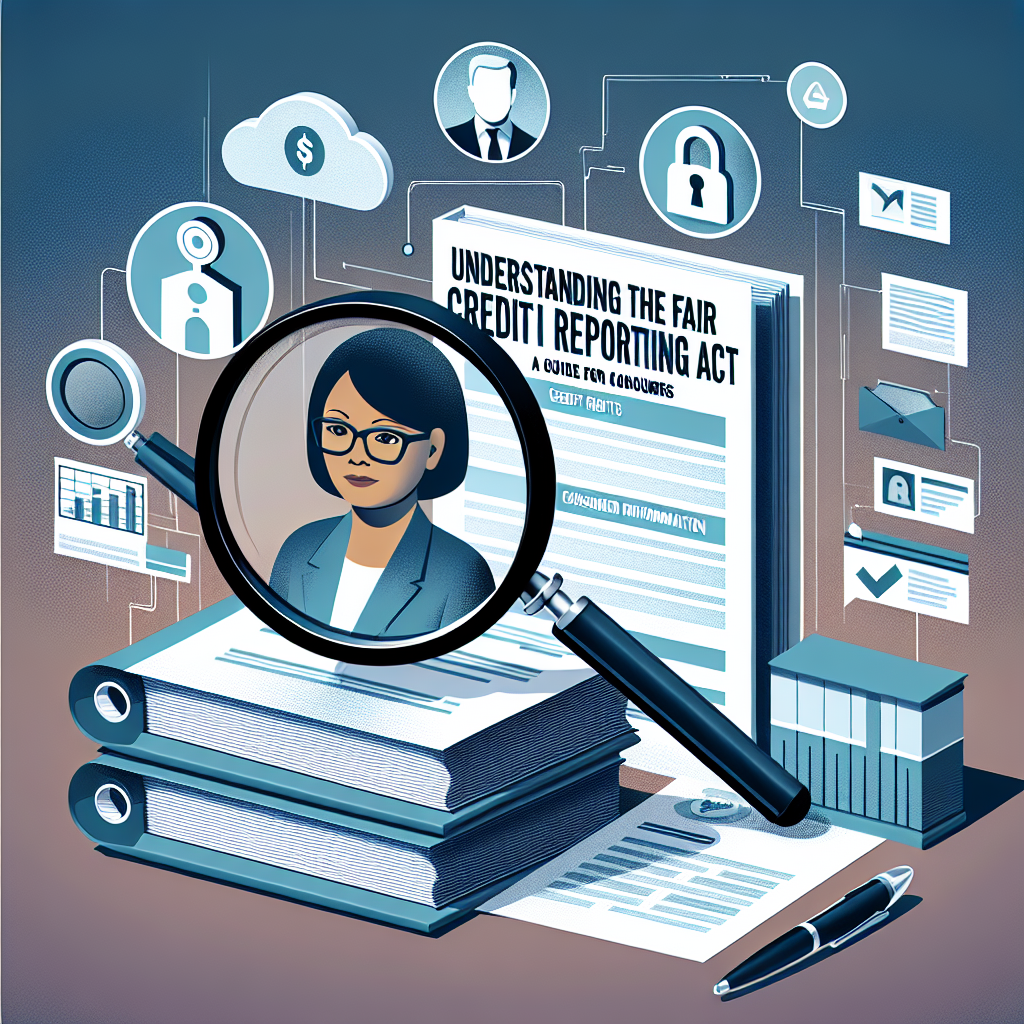The Fair Credit Reporting Act (FCRA) is a critical piece of legislation that affects how consumer credit information is collected, used, and shared. Understanding the FCRA can empower consumers to take control of their financial health and protect their rights. This comprehensive guide outlines the main components of the Act and what it means for you.
What is the Fair Credit Reporting Act?
The Fair Credit Reporting Act was enacted in 1970 to promote accuracy and ensure the privacy of consumer information. It governs how credit reporting agencies collect and share information about consumers. The FCRA aims to protect consumers from inaccuracies and unfair practices, giving them the right to access their credit reports and dispute erroneous data.
Key Objectives of the FCRA
- Accuracy: The FCRA mandates that consumer reporting agencies maintain accurate information and provide consumers with meaningful opportunities to correct inaccuracies.
- Consumer Rights: It outlines specific rights of consumers regarding their credit reports, including how to obtain reports and how to dispute inaccuracies.
- Limited Access: The Act restricts access to consumer credit information to only those with a legitimate need, such as lenders or employers.
Your Rights Under the FCRA
Understanding your rights under the Fair Credit Reporting Act is essential for safeguarding your financial well-being. Some of the key rights provided to consumers include:
1. Right to Access Your Credit Report
Consumers are entitled to request and obtain a free copy of their credit report from each of the major credit reporting agencies once a year. This can help you keep track of your financial status and identify potential issues early.
2. Right to Dispute Inaccuracies
If you find an error in your credit report, you have the right to dispute it. The FCRA requires credit reporting agencies to investigate the disputed information, generally within 30 days. If the information is found to be inaccurate, it must be corrected or removed.
3. Right to Limit Access to Your Information
Under the FCRA, consumer reporting agencies cannot provide your credit report to anyone who does not have a legitimate reason to request it. You have the right to know who has accessed your report and why.
4. Right to Privacy
The FCRA restricts how your personal information can be used. For instance, your report cannot be shared without your consent in situations not covered by specific exemptions.
The Role of Credit Reporting Agencies
Credit reporting agencies, such as Equifax, Experian, and TransUnion, are responsible for gathering and maintaining consumer credit information. They play a vital role in lending and can significantly impact your ability to access credit and loans.
How Credit Reporting Agencies Gather Information
These agencies collect data from various sources, including financial institutions, credit card companies, and public records. This information is compiled to create your credit report, which is then used to calculate your credit score.
How to Obtain Your Free Credit Report
Obtaining your free credit report is a straightforward process. Here’s how you can access it:
- Visit AnnualCreditReport.com: This site is the official resource for free credit reports, as mandated by the FCRA.
- Complete the Request Form: Fill out the necessary information to request reports from one or all reporting agencies.
- Review Your Reports Carefully: Once you receive your reports, check for any inaccuracies and understand what factors are affecting your credit score.
The Importance of Monitoring Your Credit
Regularly monitoring your credit report is vital for maintaining a healthy credit profile. By keeping an eye on your report, you can:
- Identify potential fraud or identity theft.
- Spot inaccuracies that could affect your credit score.
- Understand your creditworthiness before applying for loans or credit cards.
What to Do If You Encounter Issues
If you encounter discrepancies or inaccurate information in your credit report, take the following steps:
- Document Everything: Keep a record of all correspondence and notes related to the issue.
- File a Dispute: Contact the credit reporting agency to dispute the inaccuracy. Provide any relevant documentation to support your claim.
- Follow Up: Check back to ensure that your dispute has been resolved within the required timeframe.
Conclusion: Protecting Your Financial Future
Understanding the Fair Credit Reporting Act is essential for every consumer. By knowing your rights and the processes involved in managing your credit report, you can better safeguard your financial future. Use the resources available to you, stay vigilant, and take proactive steps to maintain a healthy credit profile.
Whether you’re looking to apply for a mortgage, car loan, or credit card, being informed about the FCRA and your rights will empower you to make the best decisions for your financial circumstances. Familiarize yourself with the FCRA today, and take control of your credit health!

